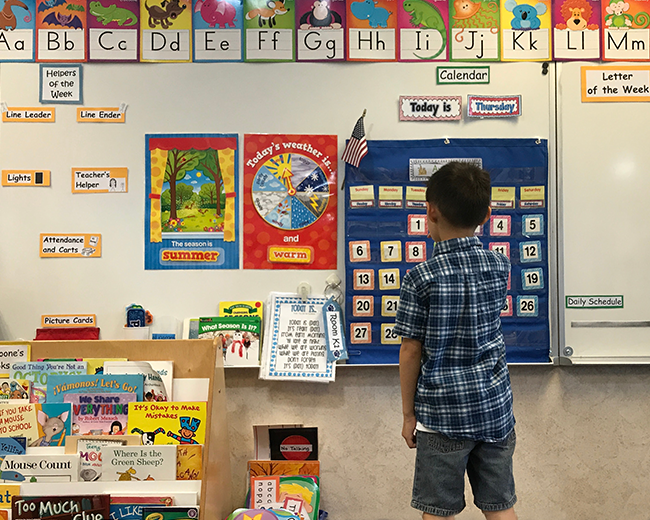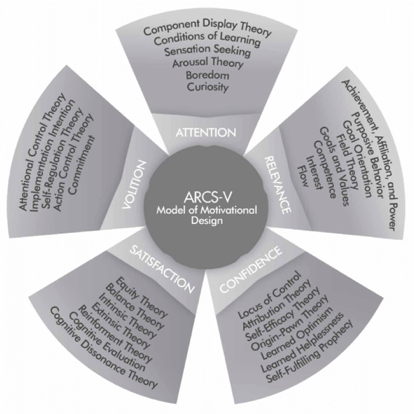Summer school can often feel like an obligation to students. But by implementing three simple strategies with purpose and intention, you can boost student engagement and help summer school students become a dedicated audience of learners instead of an obligatory audience. This article explores the research-based strategies and offers resources for implementation and professional development.
An Obligatory Audience
When was the last time you chose to attend a school play? I mean, you saw the play advertised on some earnest banner posted in town, drove to the school (perhaps arranged child care so you could have this night out), figured out where the best parking was, bought the ticket in cash at the folding table acting as a box office, sat comfortably in the audience and enjoyed the performance without knowing one single person associated with the production?

If you have, then I honor you for being a true supporter of the arts in our schools! But this rarely happens. If we went to a school play tonight and polled the audience, we would discover that they are there because their son, daughter, or friend is in it, and they want to support that person. We would probably also find students who are attending to earn extra credit for some class as well as the handful of faculty and staff members who are fulfilling some kind of supervisory role. This is what makes what I call an "obligatory audience." I taught theater in a large, comprehensive high school for over 15 years, so I know a bit about obligatory audiences.
Summer school is another obligatory audience.
Moving Students from Summer School Obligation to Dedication
Unless students choose to sign up for summer school classes that they want to take, most students are required to go to summer school for other reasons. And there you have it—an obligatory audience.
How do teachers move summer school students from obligation to dedication, from "I have to be here" to "I want to be here"? I have spent many sweltering months in Southern California classrooms in the prime weeks of summer working on the answer to that conundrum. The answer, it turns out, is in the research.
ARCS-V Motivation Model
If you dive into the existing research on motivation in education, you will find John Keller's ARCS-V motivation model. An educational psychologist at Florida State University, Keller believed that instructional design focused too much on external stimuli and not enough on learners' motivation (2016). His acronym for attention, relevance, confidence, satisfaction, and volition serves as a useful tool for identifying the ways teachers can design their instruction to meet students’ needs, inducing motivation to engage in learning experiences and persevere through challenges. Even boost summer school engagement.

Psychological bases of the ARCS-V model of motivation design (Uçar & Kumtepe, 2016)
Engagement is not about a gimmick or a one-time thing. It is about sustaining attention. Motivation demands more than just an energizer or quick, fun activity. Keller's ARCS-V model gives us the understanding and appreciation for the power of three simple, but powerful, instructional strategies to boost student engagement.
Three Ways to Engage Summer School Students
None of these three ideas to boost student engagement are particularly earth-shattering. None require special materials or large spaces or demand that you act the clown. In fact, some of them are probably things you do already. The secret sauce is how purposeful and intentional you are in their use.
Here are three things you can do this summer to boost student engagement at any grade level with any kind of curriculum.
Create and offer choice boards
The most powerful move you can make as a teacher to help with motivation and to boost student engagement in summer school is choice. When we give our students opportunities to choose, we support their growth as independent, autonomous learners. We are
- grabbing their attention by demanding that they make choices about their learning
- making their learning experience relevant by letting them choose what appeals most to them
- creating confidence by giving them control over their learning
- and generating satisfaction through fair and equitable learning experiences.
Help students set goals
Goal-setting allows students to consider and identify where they want to go, what success would be for them. It gives students a purpose for learning in your class beyond having to go because those ares the rules. Goal-setting demands attention and offers relevance as the ARCS-V model proposes.
Goal-setting offers authentic, personalized celebration of learning. While you must grade students on mastering standards, goal-setting takes into account that each student's journey is different, which offers the confidence and satisfaction from the ARCS-V model.
Lastly, goal-setting is the first step in nurturing a love of learning that is not based on extrinsic rewards like grades and points, but on how much effort they put into improving on the things they identified as relevant and valuable to them. And this is how you can support perseverance and a growth mindset, otherwise identified as volition in the ARCS-V model
Include regular reflections and class evaluations
Regular reflections are good for so many reasons. First and foremost, they help with cognitive load barriers. Additionally, reflecting moves learning from short-term to long-term memory. Most importantly, though, reflecting on learning helps motivate learning. Reflections demand attention, make learning relevant, inspire confidence and satisfaction and support volition.
Another kind of reflection is a class evaluation. Summer school is a great time to try new things. If you are working to motivate summer school students, wouldn't you want to continue using the strategies that work for these students throughout the regular school year? Including class evaluations in summer school is a way for you to get teacher feedback on what works and what doesn't. The evaluations also motivate students by validating their opinions as valuable and making them more confident learners.
These three strategies can move your summer school students away from being that obligatory audience and toward authentic, engaged learning. Use them to boost student engagement and help students grow as independent, autonomous learners.
Keller, J. M. (2016). Motivation, learning, and technology: Applying the arcs-V motivation model. Participatory Educational Research, 3(2), 1–15. https://doi.org/10.17275/per.16.06.3.2
Uçar, H., & Kumtepe, A. T. (2018). Integrating motivational strategies into Massive open online courses (moocs). Administrative Leadership in Open and Distance Learning Programs, 213–235. https://doi.org/10.4018/978-1-5225-2645-2.ch009



